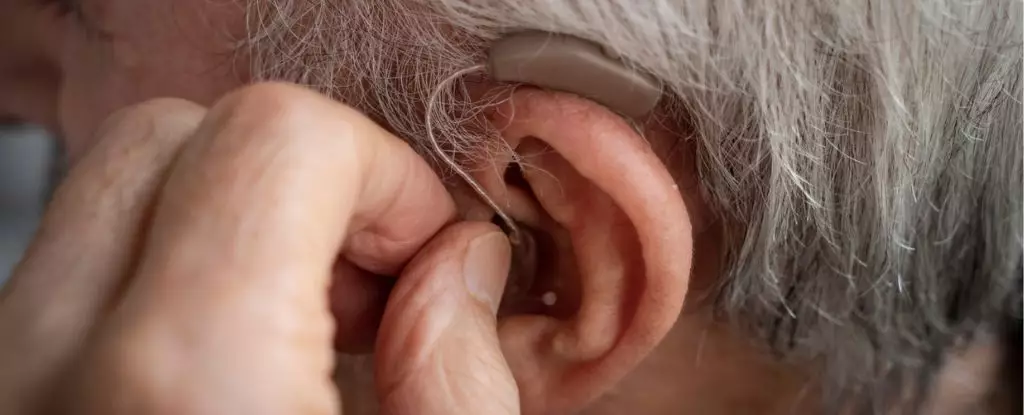Recent research has established a fascinating connection between hearing loss and the potential delayed onset of Parkinson’s disease. This groundbreaking study, focused on a demographic of over 3.5 million veterans in the United States, highlights a striking correlation: individuals suffering from untreated hearing loss appear to face a higher likelihood of developing Parkinson’s later in life. The implications of these findings could revolutionize how we view both hearing health and neurodegenerative diseases.
The research led by neurologist Lee Neilsen from Oregon Health and Science University indicates a clear trend: the severity and duration of hearing loss correlate directly with an increased risk of being diagnosed with Parkinson’s disease. Notably, this risk appears to decline significantly for those who utilize hearing aids early in the process. This evidence suggests that addressing hearing loss might not only improve quality of life on a daily basis but could also serve as a critical preventative measure against cognitive decline associated with conditions like Parkinson’s.
Moreover, the study reveals that mild hearing loss in veterans—a group that predominantly consists of middle-aged White males—shares a cumulative association with Parkinson’s over two decades. For instance, a surprising statistic emerged from the data: ten additional Parkinson’s cases were recorded per 10,000 individuals tied specifically to mild hearing loss over the study period. This stark finding underscores the need to rethink the significance of hearing health within the broader context of aging and neurological well-being.
The findings are especially compelling when considering the role of hearing aids. According to the study, veterans who received hearing aids in the early stages of their hearing loss exhibited markedly reduced risk for developing Parkinson’s, compared to those who did not use these devices. The data showed differences in Parkinson’s diagnoses as soon as one year into the study, solidifying the idea that timely intervention can substantially affect long-term health outcomes. Thus, hearing aids may offer a low-cost, low-risk solution that could enhance brain health as individuals age.
The broader implications of these results align with previous research indicating that managing hearing loss with hearing aids could significantly slow rates of cognitive decline. A 2022 systematic review found that adults using hearing aids were 19 percent less likely to exhibit cognitive decline compared to their untreated peers. A subsequent clinical trial in 2023 further bolstered this idea, suggesting that hearing aids may even halve the cognitive decline rates among older adults.
The underlying mechanisms connecting hearing loss, hearing aids, and Parkinson’s disease remain an area ripe for exploration. Scientists are keen to understand whether hearing aids aid in restoring or strengthening neural connections, similar to the benefits of regular physical exercise on muscle function. Another intriguing hypothesis posits that hearing aids may alleviate cognitive load or stress on the brain, leading to more efficient functioning general cognitive functioning.
Moreover, the social benefits of using hearing aids cannot be overlooked. Improved auditory access can enhance social interactions, combat feelings of loneliness, and alleviate depressive symptoms—all factors that contribute to cognitive decline. Therefore, in addition to improving hearing ability, these devices may support mental health and overall brain function.
The findings advocate for immediate action, particularly in primary care settings. Lee and his colleagues have emphasized the importance of regular hearing screenings, even among patients who do not report any hearing difficulties. This proactive approach could facilitate early interventions, ultimately reducing the risk of dementia and Parkinson’s onset.
As the research community calls for further randomized clinical trials, the emphasis should not only be on establishing the risk association but also on dissecting the mechanisms that underpin these findings. Understanding whether hearing aids restore neural pathways, alleviate cognitive burdens, or enhance social engagement could lead to substantial advancements in preventative healthcare for neurodegeneration.
The connection between hearing loss, the use of hearing aids, and the risk of developing Parkinson’s disease underscores a crucial intersection of audiology and neurology. In an aging society, enhancing our understanding of how auditory health influences cognitive decline could create new pathways for intervention, ensuring healthier lives for millions of individuals. As research progresses, the alliance between hearing aids and brain health may just become one of the most significant health strategies of our time.

